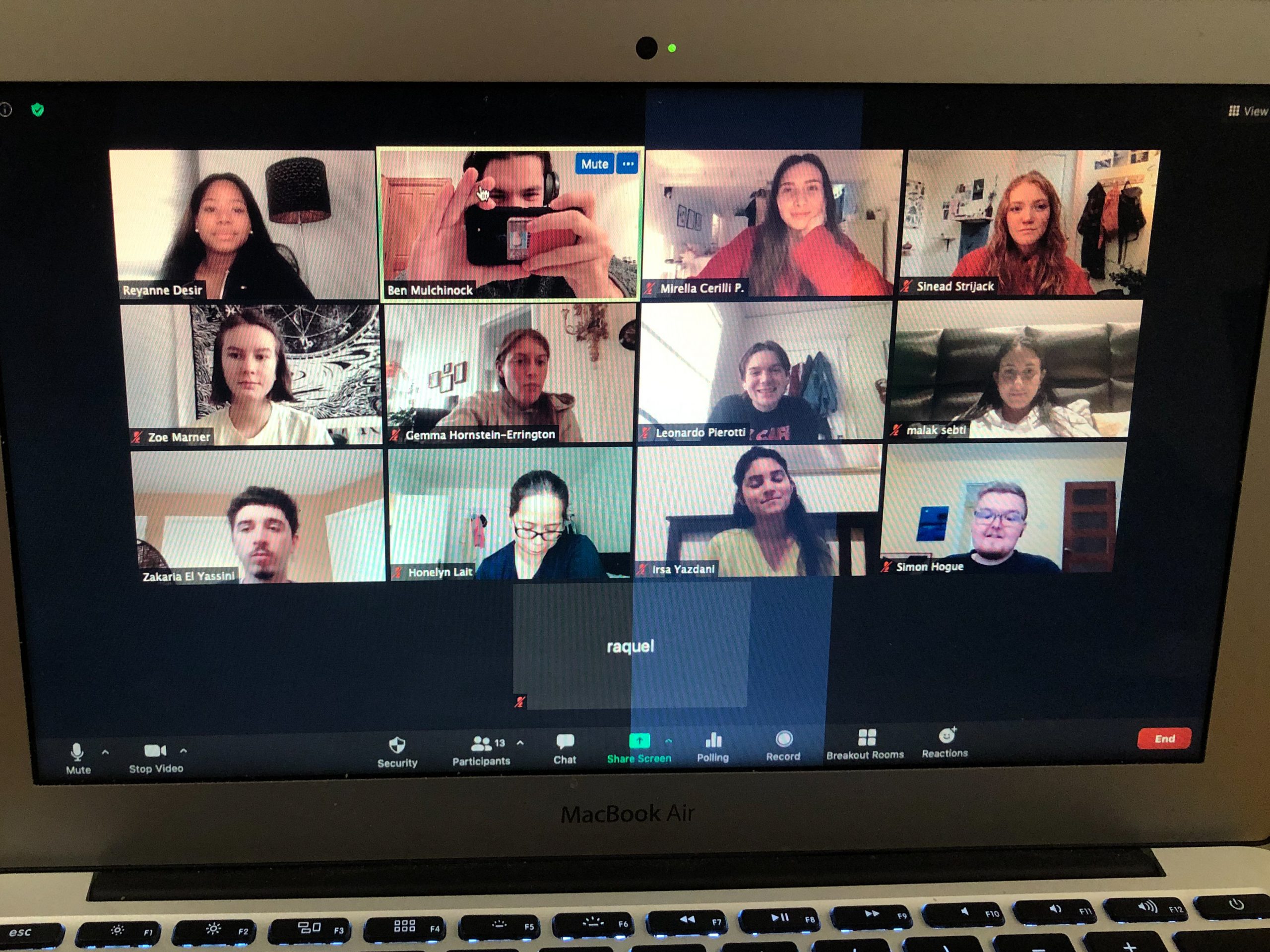They said it would rain that day, but there were hardly any clouds in sight. They said he might never walk again, doubted he would be anything more than a vegetable. But on this day, he was about to compete in a triathlon.
Muscular and spandex clad, with the number 1129 written in black marker on his arm and leg, Concordia student Enrico Quilico looked like all the other Spirit triathlon participants on this sunny September afternoon.
Only his scars, among them one at the base of his neck from a tracheotomy, another along his elbow from the metal plates and titanium screws put in to reconstruct his shattered arm, provide clues to what the 25 year-old had gone through in the last two and a half years.
On May 21, 2006, a scar-free Quilico stopped for a smoked meat sandwich at his favourite spot, Smoke Meat Pete’s on his way to visit his father in Ile-Perrault. Driving his father’s motorcycle, he got back onto highway 20 and began speeding up. Seconds later, his crippled body laid unconscious, spread across the pavement.
An oncoming driver, who later admitted to police he had seen the motorcyclist, but was hoping to pass before he arrived, cut Quilico off. The young man braked abruptly, causing his bike to fall on top of his body, crushing his elbow, breaking several of his ribs and fracturing his pelvis. He skidded for 60 feet before crashing into the car, his head striking a rim at 70 kilometres per hour, resulting in a severe traumatic brain injury (TBI).
“I remember putting my hands to my head, shouting ‘No, no, no,’ as if the words would stop the ensuing accident,” said William Foulkes, who witnessed the scene from aboard the car directly behind Quilico. “It seemed too awful to be real.”
But what may seem too good to be true is that Foulkes and his wife Norah are both doctors at the Montreal General hospital. Rushing to Quilico’s side to check his vital signs, they insisted he be taken to the intensive care unit of the MGH, rather than to a closer hospital that may not have the expertise. William Foulkes even rode in the ambulance with Quilico and remained by his side until the first CT scan of his head was done.
“Either my grandparents were looking down on me from above, or God chose to give me a break, or both,” said Quilico of the lucky coincidence. He now bears a tattoo of an angel on the inside of his left arm, “close to my heart,” in remembrance of his grandmothers, who he believes are his guardian angels.
It seems these angels continued to watch over him as he began what would be a very difficult healing process, a series of events his family refers to as “the black Fridays.” Upon his arrival at the hospital, doctors induced Quilico into a coma to allow his brain injury to heal. Despite this, his brain continued to swell up. So much so, that to relieve the mounting pressure in his head, doctors resorted to removing a large part of his skull.
In the following days, Quilico’s body began to shut down. Some of his glands ceased to work, he developed a pancreatic infection, had fever, diarrhea, a sinus infection and pneumonia. He underwent a four-hour surgery to piece his elbow back together and a tracheotomy to reduce the pressure in his lung, in addition to being hooked up to a ventilator.
“It was like those shows on TV with all the machines beeping,” said Kathryn Stephenson, Quilico’s mother. “And they (the machines) go off all the time and you panic. It was really horrible.”
Three days after the accident, Quilico was taken off the coma-inducing drugs, which should have led him to wake up soon after. But over two weeks passed, and the young man was still comatose. Doctors feared he was brain dead and advised his parents to consider pulling the plug if he did not awake in the coming days. The next Saturday, his eyelids began fluttering. He had regained consciousness.
After two months in the hospital and one in the rehabilitation center, where he relearned how to walk, Quilico was finally free to go home. He continued physiotherapy, however, until April of 2007 and still keeps, at his bedside, an electrostimulation machine, which he uses to rebuild the atrophied muscles in his left arm.
Although his body recovered well, his TBI dragged his mind through a roller coaster ride of euphoria, hallucinations, paranoia and depression. Little by little though, the symptoms subsided and he was well enough to go back to school.
His brain injury left him with other troubles, however. He had little energy, short-term memory problems and a learning disability. To cope with the changes, he had to start napping daily, to reduce his course load and to get assistance from the university’s learning disability department.
“I was back in life, in the real world, but I had difficulties doing the simplest things,” explained Quilico. “It was extremely frustrating and still is sometimes. Completing an exam is like World War III for me.”
But the young man maintains that the accident impacted his life in a very positive way. He credits it for helping him abandon his “irresponsible and erratic lifestyle,” which involved a lot of partying, drinking and smoking. Shortly before the accident, Quilico was even contemplating quitting school.
“I was working a lot and just wanted to make money,” he remembered. “That’s not important anymore. I think it would make me sick to try to sell things to people. I want to be a teacher now and do something that’s rewarding in other ways.”
With a new appreciation for life, Quilico decided to do things he had always wanted to do, but had never dared to do in the past. He became an arts writer, acquired his trainer certification and began working at the YMCA, went sky diving, backpacked alone around Eastern Europe and decided to participate in a triathlon.
The latter ambition required rigourous training, involving a weekly mix of uphill runs on Mount-Royal, swims along side a professional team at the Y, endurance weight training and long distance bike treks with a team of cyclists.
“His goal wasn’t to have a place on the podium,” said Patrick Girard, a close friend of Quilico’s, who was also his training partner when they went for runs through Lafontaine Park. “It was to finish the race and do his best.”
On Sept. 13 of this year, Quilico did exactly that. Alongside dozens of other athletes decked out in their red swim caps, the young man jumped into the Olympic Bassin as the horn sounded the start of the three-stage sprint triathlon.
“I was so emotional when I saw him get in the water,” said Gino Quilico, Enrico’s famous operatic baritone father. “I was really proud of him, just so proud of him.”
Under an hour and a half later, Enrico’s energy issues were unperceivable as he soared across the finish line after completing a 750-metre swim, 20-km cycle and 5-km run.
“Oh it was amazing, really amazing,” said Stephenson of seeing her son cross the finish line. “I always knew he could do it. When Rico puts his mind to anything, he can accomplish the impossible.”
Master your Photo Skills with the Concordian
Photography is as easy as one, two, three! Are you ready to switch out the average camera on…



